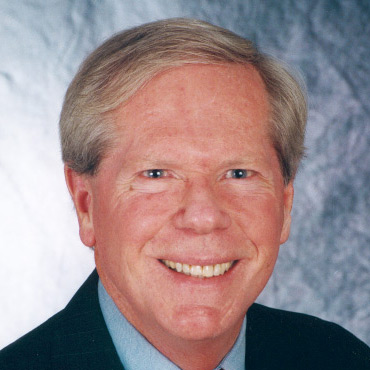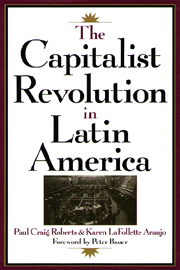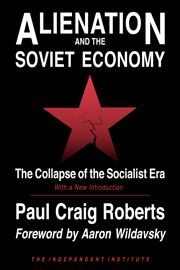Some readers may be amazed to hear me acknowledge that supply-side has a downside after all. It appears to have reelected the Clintons despite the prediction of Jerome M. Zeifman, a Democrat who was chief counsel of the House Judiciary Committee’s Watergate impeachment investigation of President Richard Nixon, that "there is now probably cause to consider our President and First Lady as felons who are likely to be indicted after the Nov. 5 election." An Arkansas barnful of Whitewater scandals and related abuses of power have proved to be paltry stuff compared to a healthy economy.
That economy is healthy because it can now grow without inflation. We owe this success to voodoo economics, which in 1981 terminated the policy of relying on monetary expansion to maintain full employment. Instead, the supply-side approach combined out-put incentives in the form of lower marginal tax rates with a noninflationary monetary policy. It has worked for 15 years, and despite Reagan, Bush, and Clinton tax hikes, there has been no return to the Keynesian policy.
The economy’s success has given us a Presidential campaign without issues. With employment high and inflation low, Dole can’t sell his tax cut. Moreover, both candidates seem equally terrified of asking the electorate to confront looming issues. For example, in giving assurances that they would not let anything happen to Social Security, both played the role of King Canute, promising, in effect, to roll back the demographic tide that spells doom for the pay-as-you-go intergenerational transfer of income.
At a Disadvantage
We can get through an election without any debate on economic issues and, perhaps, even through four more years. But issues are mounting, as the formerly socialist world becomes as capitalistic as the U.S. The proliferation of competitors and competitive environments means that the U.S. has no choice but to rethink its tax system. Far more drastic changes are in the offing than Reagan-era reductions in marginal tax rates. It will not be possible to continue with labor and capital as the tax base for government spending.
In the merging globally competitive economy, developed countries such as the U.S. are at a disadvantage because they have created massive entitlements financed with a payroll tax. In the global economy, capital, technology, and entrepreneurial skills are internationally mobile, but labor is not. The demise of socialism means that it is possible for capital and technology to seek higher earnings in lower-cost labor markets. Not only is U.S. labor expensive but it is burdened by a 15.3% employment tax, and demographics combined with promised entitlements are pushing this tax up.
Moreover, a national pension system based on income transfers provides no national savings to finance investments that boost labor productivity. Social Security and Medicare put U.S. labor at a disadvantage with a stiff employment tax and then clobber it again by preempting both savings and productivity growth.
Tractor or Shovel?
It is in no one’s interest to finance retirement pensions with an employment tax instead of investment earnings. Capital is what gives labor its earning power. Consider how much more productive a laborer is with a hovel than with bare hands, or with a tractor than with a shovel. Yet the U.S. makes the mistake of financing pensions by taxing employment - and reduces the capital stock by taxing capital.
The earnings of capital are subjected to a plethora of federal, state, and local taxes: corporate income taxes, personal income taxes, capital gains taxes, and property taxes. If depreciation allowances, determined by tax laws are inadequate, the real value of capital investment may never be recovered even though mandatory accounting procedures produce a taxable profit.
Policymakers would be hard put to devise a more antiproductivity tax system than the U.S. code, or one more likely to mean failure in world competition. American tax law is economically absurd. Its harmful consequences would have been recognized decades ago had it not been for the massive capital destruction of World War II and the postwar socialist era that protected the U.S. from economic competition.
The U.S. can live a little longer off its historical benefice, but there comes a point when a sinking ship cannot be passed on to the next watch. It either gets repaired or it sinks. The next election is likely to bring challenges to the atavistic ideologies that imperial success in the name of fairness and perpetrate the myth that redistribution is the basis of a humane economy.









